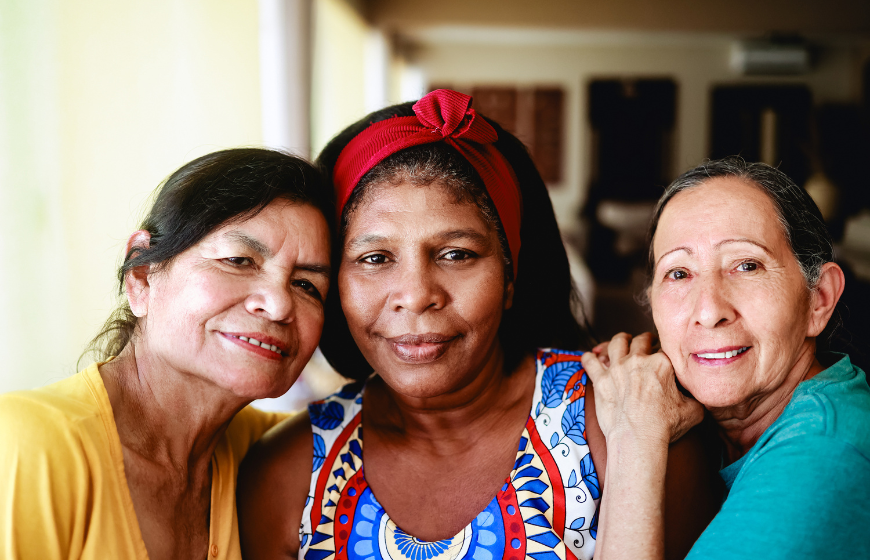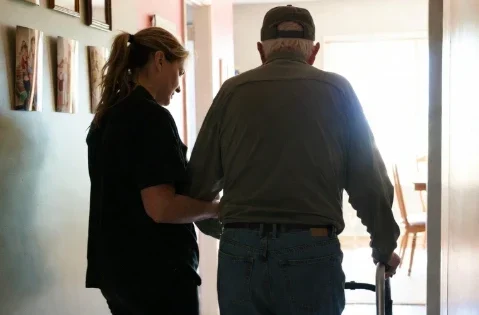When life starts to feel uncertain in the face of memory loss, routine can be our most powerful ally. June is Alzheimer’s and Brain Awareness Month, a perfect opportunity to bring more structure and predictability into your life—or the life of a loved one you’re supporting—as you navigate cognitive changes and brain health concerns.
A simple routine can make a meaningful impact on brain health and emotional wellness by reducing anxiety and preserving independence. It’s an overlooked tool in brain health care at home, one that’s worth embracing this month.
Let’s look into why routines matter, how they support memory, and how loved ones can create supportive environments with the help of home health care professionals.
Why Routine Matters for Brain Health
Our brains love patterns. And when brain function begins to change due to aging, early signs of dementia, or Alzheimer’s, those patterns become even more important.
Establishing a daily routine isn’t just about keeping busy. It also provides a sense of stability that helps you stay grounded. Here’s how routines support brain health and memory:
#1: Routines Reduce Anxiety
One of the most common challenges you or your loved one face with memory loss is the feeling of confusion or unpredictability. Not knowing what’s coming next can lead to fear or agitation. A steady routine reduces these unknowns and offers reassurance throughout the day.
#2: Routines Support Independence
When your activities happen in the same order and at the same time each day, they become easier to remember. This could be activities as simple as brushing your teeth after breakfast to taking an afternoon walk around your neighborhood. These automatic actions help you retain some independence even as cognitive decline progresses.
#3: Routines Promote Safety and Structure
In a home environment, routine ensures your important tasks like taking medications, eating nutritious meals, and staying hydrated aren’t forgotten. With the guidance of a home health aide or home nurse, even complex routines can be simplified and managed with dignity.
Practical Routine Ideas for Brain Health
Whether you’re supporting a loved one with dementia care needs or building a personal routine for brain health, the key is to keep it simple, consistent, and tailored to what matters most. Here are some ideas to get you started:
- Use visual cues and calendars. Boost your motivation by writing out your day’s schedule. Use whiteboards, checklists, or memory books to support routine and memory support at home.
- Stick to a consistent sleep schedule. Good sleep is essential for memory. Waking and sleeping at the same time every day supports your natural circadian rhythm and promotes better mood and cognition.
- Schedule regular mealtimes. Predictable, nutritious meals can reduce stress you or your loved one are facing and support both your physical and brain health. Plus, mealtimes become a familiar anchor in your day.
- Take on meaningful activities. What means the most to you or your loved one? Maybe it’s listening to music, gardening, or taking your dog for a walk. Include familiar tasks in your everyday schedule for comfort and engagement.
- Make space for quiet time. Rest is just as important as activity. Time to relax or nap prevents you or your loved one becoming overstimulated. It also gives your brain a chance to recharge.
How Routine Helps Families, Too
If you’re a family caregiver, you already know that life with Alzheimer’s or cognitive decline can feel unpredictable. Routines don’t just help your loved one who’s receiving care; they help your other loved ones on the care team. When the day has structure, you and your support system can plan better, feel less overwhelmed, and focus on connection instead of constant problem solving.
That said, caregiving can still be a lot to manage. If you’re feeling stretched thin or wondering how to provide more consistent support, you’re not alone. And you don’t have to do it alone.
How Alliance Homecare Can Help
At Alliance Homecare, we understand how meaningful a familiar routine can be. That’s why our team of compassionate home health aides and private duty nurses are trained to integrate personalized routines into every care plan.
Whether you need in-home care for Alzheimer’s or want a professional to help create calm, structured days for a loved one who is showing early signs of dementia, we’re here to help.
There’s no one-size-fits-all solution to memory care and brain health. But during this Alzheimer’s and Brain Awareness Month, let’s work together on simple, consistent routines as a powerful part of your memory care equation. Let us build a daily care routine at home for you or your loved one today.




